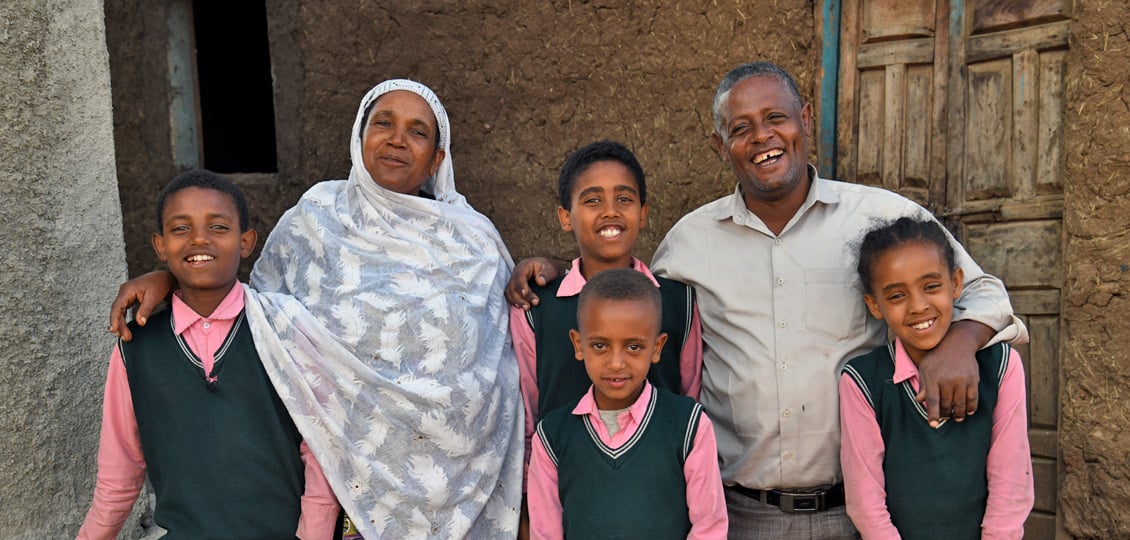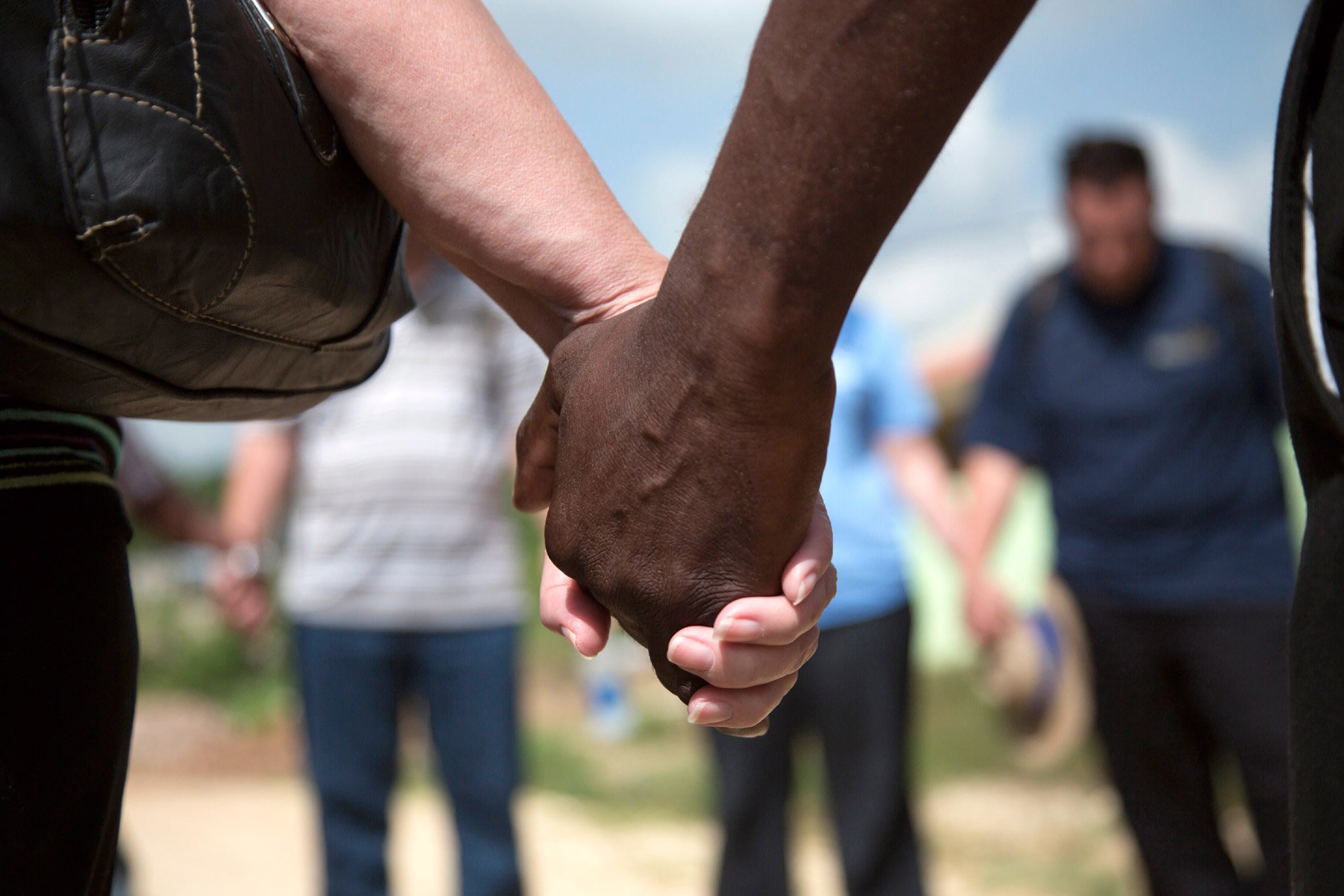His carpentry workshop and steel company were burned to the ground. His house and those of more than 200 other Christians in his village were destroyed. His village is somewhere in the middle of Ethiopia in Africa. Radical Muslims had planned to drive the Christians out of the village for good. However, after a period of despair and hopelessness, the sound of hammers and saws can now be heard again. Jemal’s* workplaces are being rebuilt. “Our God is a God of hope. He works. He brings change. I hold on to that.”
Whoever walks into any Ethiopian village immediately notices the hustle and bustle: donkeys pulling carts, tuk-tuks and motorbikes navigating through traffic, street vendors haggling and people sipping coffee at low tables on the pavement. Construction workers are working down the road in the heat and din.
At first glance, the hustle and bustle seems to be a sign of progress. But if you look closer, you’ll see other changes too, such as more women and girls covering up according to Islamic rules, and new, richly decorated mosques towering above houses, shops and workshops.
In one day, everything I had built up over decades was reduced to ashes.”
Beneath this liveliness, however, lies growing tension between Muslims and Christians. Violence of an extreme kind sometimes erupts, as we saw in the village of Christian businessman Jemal. His neighbours suddenly became his enemies when the village was attacked in an attempt to drive out all the Christians.
Increasingly isolated
“We had a good life,” Jemal begins. He and his wife, Fatima*, were Muslims, but they converted to Christianity. Although ex-Muslims in Ethiopia are often excluded by their families and society, Jemal, a Christian, had built up a good relationship with the people around him. His carpentry and steel businesses were doing well. He had his life in order and felt secure.
That is, until Muslim clerics came to the village and began to preach radical messages. “They told the villagers that they should no longer talk to us. They frightened people. Christians in positions of responsibility within the community were removed from their posts. Christian taxi companies were no longer permitted to work alongside Muslim colleagues, and people were urged not to purchase goods or services from Christians. The result was that Christians and Muslims became increasingly separated from each other.”
LEAVE YOUR HOUSE AND FAITH
Tensions in the village continued to rise. Eventually, the municipal authorities intervened, but this was precisely the spark that was needed to ignite the anger. ” The attack began on Monday night,” Jemal recalls. “The next day, they tried to take my life. I wanted to stay and protect my home and business, but we had to leave. On Tuesday morning, groups went from house to house searching for Christians. They destroyed everything they found and lit fires. In one day, everything I had built up over decades was reduced to ashes.”
By robbing Christian men of their jobs and income, the attackers hoped to weaken and humiliate them, leaving them unable to provide for their families. “They believed that we would return to Islam once they had destroyed our possessions and left us with nothing to eat or drink,” Jemal explains. On that day, 215 Christian homes were burned down and 375 Christian families were forced to flee.
In the world, you will be hated and rejected. I have a deeper understanding of this now.”
For Jemal, this marked the beginning of a difficult time as a father, husband and man. In that respect, the attackers were right. Jemal was deeply affected by the fact that, from one day to the next, he was no longer a successful businessman but had to deal with the loss of his home and his businesses. “I was broken. I can still feel the emotions I felt then. The attack had a profound impact. How was I supposed to take care of my young children?”
A difficult return
His faith was severely tested during that time. Jemal had a profound connection with the biblical book and the figure of Job, who also experienced the loss of all he had. “I felt so sad. I even toyed with the idea of taking revenge,” he admits. “Later, I calmed down. As Christians, we cannot kill anyone. The Bible does not call for that. I try to remain faithful to God’s Word.”
Thanks to the help through local Open Doors partner organisations, Jemal and other Christians from his community were able to return to their village. However, that return did not come without a struggle. “Some villagers were threatened with death. Muslim vendors are still not allowed to do business with us. Now, one person from our community goes shopping in another town for all of us,” says Jemal. However, there is something he finds even more painful. “Our neighbours still don’t talk to us because they are forbidden to do so.” Even children call him names. It’s not safe for his children or grandchildren to go to school in their hometown.
God brings change, and I’m holding on to that”
Nevertheless, Jemal is filled with gratitude. He and his fellow Christian villagers received trauma care to help them process the events. Through local partners Open Doors provided training to help the community stand strong during persecution. With financial support, Jemal is rebuilding his businesses. “The Christian faith comes at a price. In the world, you will be hated and rejected. I have a deeper understanding of this now. But our God is a God of hope,” says Jemal. ‘He works. He brings change. That’s what I hold on to.”
Ethiopia ranks 33rd on the World Watch List.
Please pray with us
- Pray for Jemal and his family. They are mentally wounded and very fearful because of everything they have been through.
- Thank God that we were able to help Jemal rebuild his workshop and provide trauma care. Pray that his businesses will flourish so that he can provide for his family.
- The case of Jemal is no coincidence. There is a silent war to eradicate the church in Africa. Please pray that the violence will stop, and pray for strength for these brothers and sisters.
(* Pseudonym)

